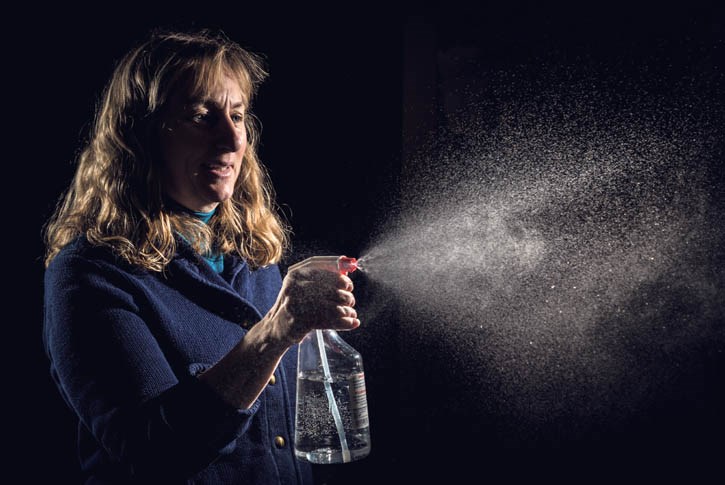CANMORE – There are big changes happening at the Canmore-based Biosphere Institute of the Bow Valley.
Founding executive director Melanie Watt has officially left the non-profit research based organization and Cheryl Hojnowski has taken over the position.
Watt was the first person hired by the fledgling board of directors in 1997 when Canmore and the Bow Valley was struggling with significant development and growth issues, concerns that remain at the forefront for many residents today.
“The big issue at the beginning was having a neutral place where people could get information,” Watt said in an interview with the Outlook. “The first thing I was hired to do was to put together a database of all the information on the ecology issues of the Bow Valley.
“Even though people were talking about the same issues, they were not looking at the same research, which speaks to why it was important that there was a neutral place where people could find out all the information out there.”
The need for a database of research on ecological and environmental issues was also something to come out of Canmore’s growth management strategy in the 1990s.
Watt was the only employee for a time, and the organization began operating out of her home to start. It took a few years, but the Biosphere eventually ended up in the old town hall offices – now the Canmore Seniors Centre.
Program associate Bruce Gleig was brought on, and the Biosphere took over production of Canmore’s Community Monitoring Report for the municipality – a $35,000 contract.
The Biosphere also began developing different programming, including educational programs for local schools and the general public related to the environment such as worm composting, the Save-a-Watt campaign, One Tonne Challenge, solar panel and e-bike workshops, and even recently helping people create their own rain barrels.
It became a registered charity in 2003 and Watt was on the committee that created WildSmart after Canmore resident Isabelle Dubé was killed by a grizzly bear in 2005.
“We were involved in all sorts of different programming and we helped bring the Natural Step to Canmore,” she said. “We have also been fortunate to get funding from all three levels of government.”
With 21 years leading the organization to a point where it was fully staffed and running well, Watt said it was time to pursue her interests in writing and teaching. Looking back, she said Canmore has tackled many issues in that time, but some issues remain the same.
“It has very much been a changing community and I think one of the things that has stayed the same is people’s passion for the community,” she said. “One of our big focuses has been small steps and next steps programs and the idea to always be thinking about what you can be doing.”
When the board of directors began the search for a new executive director, chair Karen Hanna said they knew they would have big shoes to fill.
But it was more than just the transition from the success Watt was able to find over two decades; the role moving into the future would also have to forge a new path when it comes to community engagement and changing behaviour.
“The focus now being really on community engagement and (helping) people so they can make better choices in their lives that are helping to make things better from an ecological perspective,” Hanna said. “Cheryl has the background and experience to really take it to the next level and make these new initiatives a reality.”
Hanna said the Biosphere Institute started in the late ’90s to address specific concerns around development at that time, but it has evolved to become an organization that is addressing issues like climate change that are very relevant in today’s world.
“We really didn’t realize how much we needed it until 20 years later,” she said.
Hojnowski has taken on the role and brings with her energy to move the Biosphere Institute into the future. Her background includes a PhD in wildlife ecology, and developing programming to help communities engage in behaviour change in the context of human-wildlife conflict.
“I am really attracted to the Biosphere’s mission in terms of its focus on research and education,” Hojnowski said. “For me in my career, that has been two focal areas for my research and it is so critical for conservation to help identify challenges, identify potential solutions and evaluation of whether or not the actions we are taking are effective.”
She said her admiration for the organization comes from its research-focused approach and educational programming toward addressing conservation challenges and increasing public awareness.
Hojnowski’s PhD was focused on research questions around how wildlife adjust their behaviour patterns in high human use recreation areas. Prior to that, she lived and worked for six years in Russia working with communities on human-wildlife co-existence.
“The question of human-wildlife co-existence has almost permeated my career and it is something I am very interested in,” she said. “I actually feel very fortunate to be given the opportunity at the Biosphere, because particularly in the last few years of my PhD having spent this time understanding how wildlife adjust their behaviour to co-exist with us, I felt more and more this urgency to work on how we try and change human behaviour too.”




